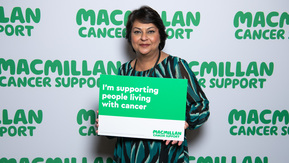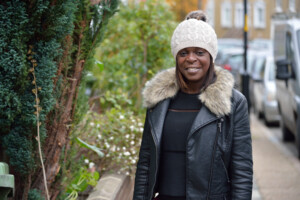Support during breast cancer
Support around diagnosis
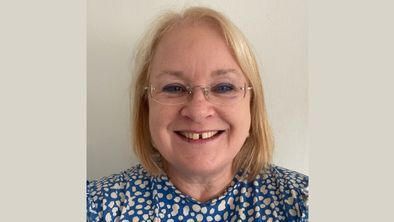

I am now a complete Macmillan Support Line convert. It was brilliant and you can be really honest with them... She helped me find myself and my voice so that I could advocate for myself.
Carrol
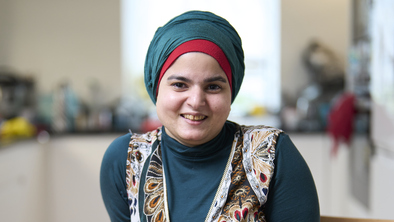

Leaflets, consulting Macmillan’s website and talking to a Macmillan adviser were some of the best things that happened for me. The leaflets, which I kept with me for quite a while, helped me realise I could get disability benefits.
Anoushé
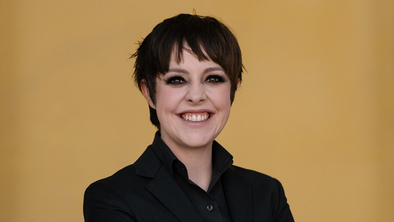

The stories Macmillan shares help those diagnosed with cancer to understand they are not alone, and the information about treatments and cancer is easy to understand, accurate, supportive and helpful.
Katie
Support during treatment
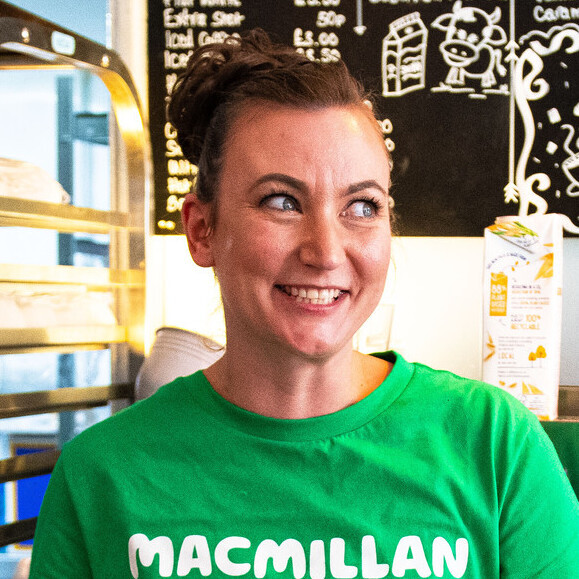
Jenny
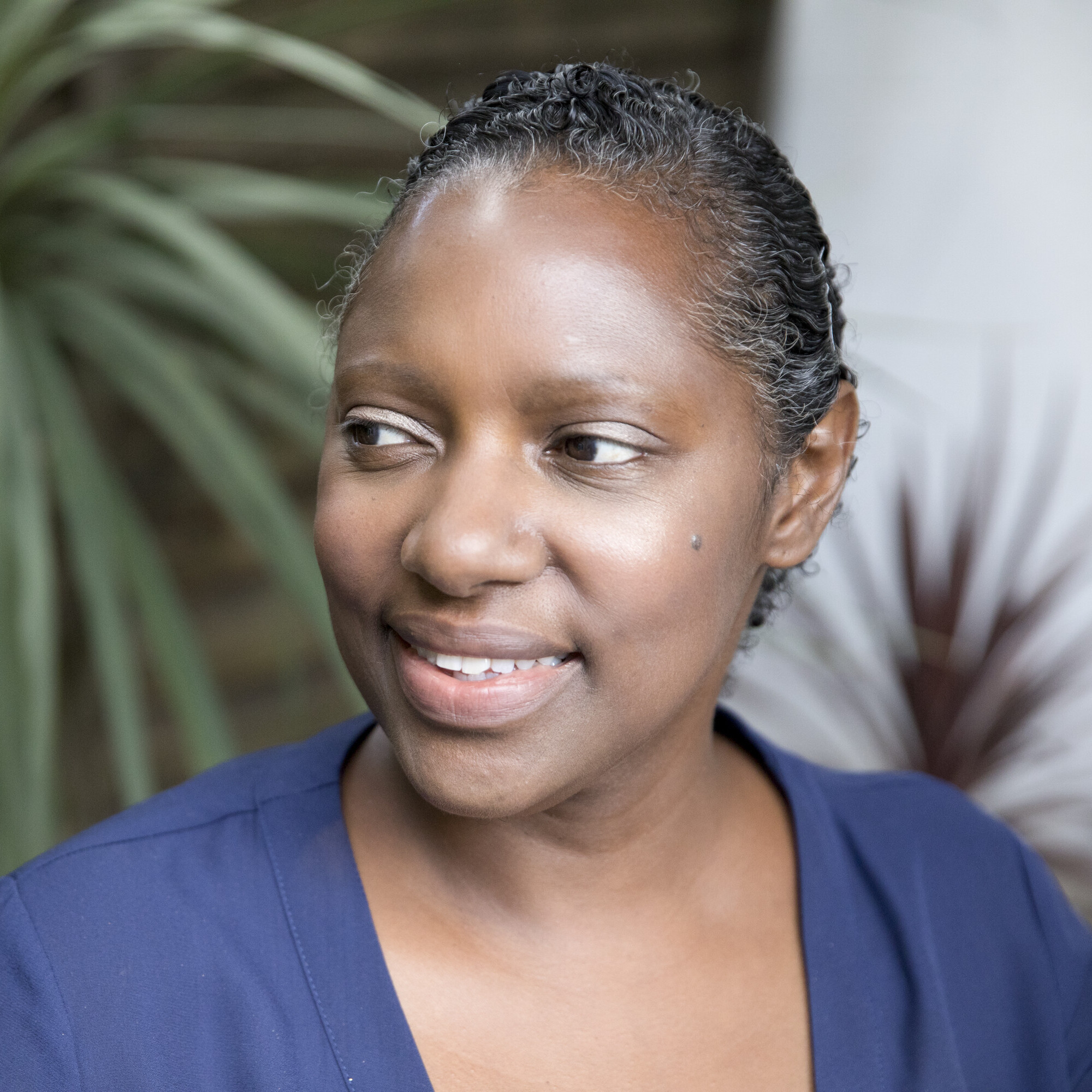
Lurline
The service provided by Macmillan at the hospitals I attended has been superb. The vast resources of free information, advice and supportive activities have helped me not only to cope but to feel positive about myself while at my most challenging times.
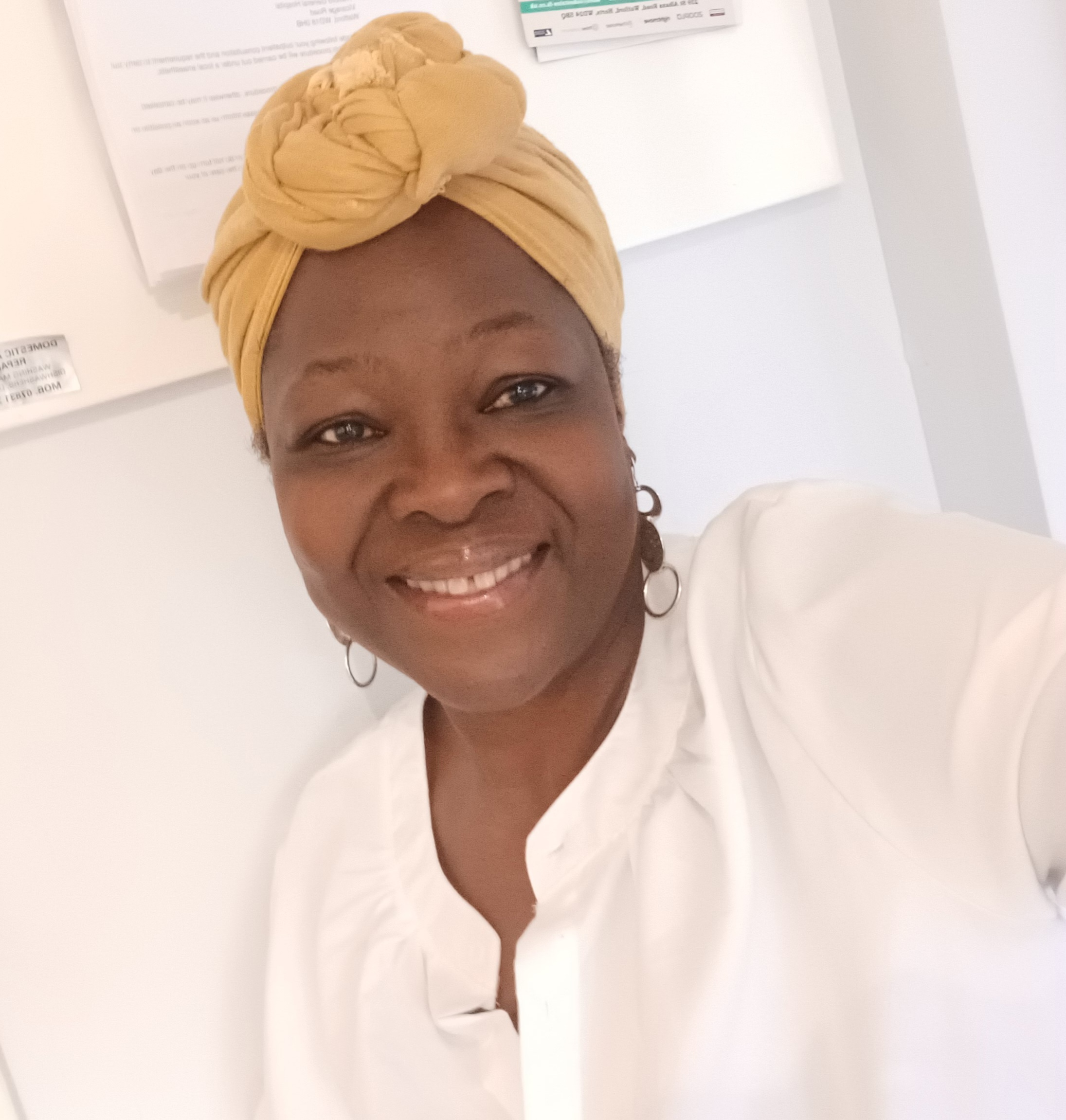
Vicky
Breast cancer in men
Supporting other people affected by cancer
Very often people people who have been affected by cancer go on to support others by sharing their experiences, volunteering, campaigning, donating or giving their time and expertise. We are grateful to all of them.
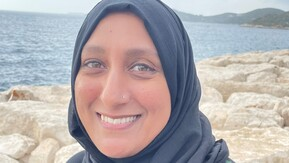

"When I started hearing other women’s stories, I decided I needed to do something."
After recovering from cancer Allia set up a support group, funded by Macmillan, where South East Asian women in Leicester can come together to talk about their cancer experience and get important information and support. She was shortlisted for a British Muslim Award for her work with Macmillan in the community.
Allia
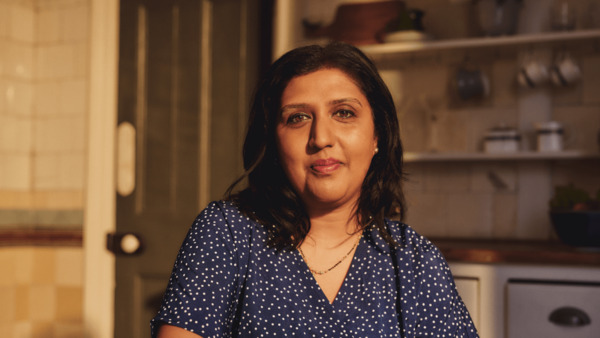

While going through chemotherapy for her triple negative breast cancer, Priyanka began writing a children’s book, ‘When Mummy Had Cancer’, to help other families talk about a parent’s cancer diagnosis.
"I'd rather speak to my children and tell them everything that I know, which has come from a professional, from someone with a medical background, rather than the Internet or social media."
Priyanka
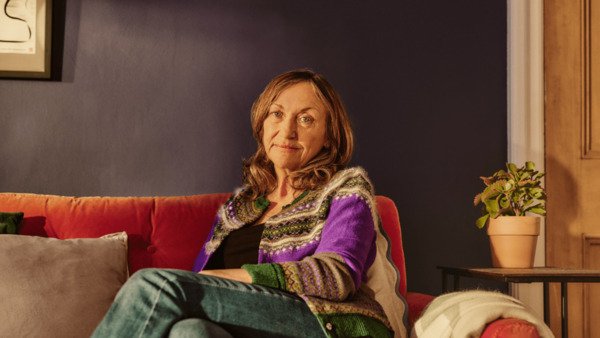

I became involved with Macmillan's work on Psychological Care. This involves developing services tailored to people with serious psychological conditions either as a result of their cancer or as a lifelong mental health condition like my own. My work on this steering group was very close to my heart. I felt I was able to contribute on many levels to a practical and essential outcome. My point of view was valued. I felt relevant again and that I had something to say that people wanted to listen to. It was so life-affirming and gave me back my self respect.
Siobhan
More information about breast cancer
We have a range of information about breast cancer on our website.
More stories like this
-
Stories 05 Aug 2024When you finish cancer treatment you may feel a range of different emotions. On this page storytellers share their experiences of life after cancer treatment.
-
Stories 23 Jan 2024Sbba was diagnosed with ovarian cancer in 2023. Since her diagnosis, she has been raising awareness to ensure women and people of colour have access to relevant information about cancer.
-
Stories 28 Nov 2023If you are affected by cancer, you may be wondering about how this could affect work. On this page, some of Macmillan's storytellers discuss common concerns about work and cancer.




